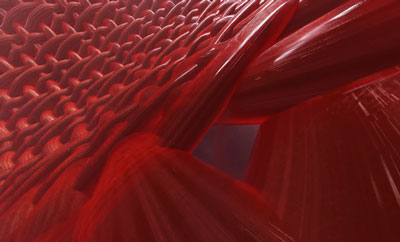Summit Therapeutics publishes preclinical data on disease-modifying potential of utrophin modulation in DMD
Posted: 13 July 2015 | Victoria White
Summit Therapeutics has announced the publication of preclinical data on the disease-modifying potential of utrophin modulation in the treatment of DMD…


Summit Therapeutics has announced the publication of preclinical data on the disease-modifying potential of utrophin modulation in the treatment of Duchenne muscular dystrophy (DMD).
DMD is a progressive muscle wasting disease that affects around 50,000 boys in the developed world. The disease is caused by different genetic faults in the gene that encodes dystrophin, a protein that is essential for the healthy function of all muscles. There is currently no cure for DMD and life expectancy is into the late twenties.
Upon modulation of utrophin protein with the second generation utrophin modulator SMT022357, in vivo models of DMD showed significantly improved muscle stability and a marked reduction of muscle regeneration, necrosis and fibrosis, the hallmark of DMD pathology. Interestingly, researchers found that utrophin was expressed across the entire length of the muscle fibre, likely contributing to its ability to significantly reduce disease progression in animal models.
“These data strongly support utrophin modulation as a potentially valuable mechanism to treat DMD and highlight the importance of the continued development of second-generation, orally available utrophin modulator candidates,” said Professor Dame Kay E. Davies of the University of Oxford. “There is tremendous therapeutic potential for utrophin modulation in this devastating disease because there is currently no approved disease modifying therapy applicable to all patients with DMD and many other candidates in clinical development are restricted to a single mutation.”
Utrophin modulator SMT022357 increased muscle stability in preclinical studies
Utrophin is structurally and functionally similar to dystrophin, the protein which is lacking in boys with DMD, and is normally present during muscle development and repair. By modifying utrophin to be continuously produced in boys with DMD, this potentially disease-modifying approach could circumvent the need for dystrophin in all patients with this devastating disease. Summit is currently in Phase 1b clinical studies with SMT C1100, a first-generation utrophin modulator.
In the reported study, SMT022357 treatment for five weeks resulted in increased utrophin expression, localised along the entire length of the muscle fibre membrane in both slow- and fast-twitch muscles. This addressed the primary cause of fibre degeneration and increased muscle stability in hind-limb muscles of the mdx mouse, which resulted in reduced regeneration and necrosis, enhanced protection of the muscle against contraction-induced damage and improved muscle function. Utrophin expression in the heart and diaphragm is highly desirable in DMD as loss of function in these organs is life-limiting in DMD. Treatment with SMT022357 resulted in significant increases in utrophin expression in both the heart and diaphragm. Notably SMT022357 treatment resulted in reduced fibrosis in the diaphragm, a significant observation due to the disease pathology in the diaphragm of the mdx model closely resembling that of DMD patients. These data suggest that SMT022357 results in significant improvement in the pathology of DMD and could represent a disease-modifying therapeutic strategy for all patients with DMD.
The data were published in Human Molecular Genetics.
Related conditions
Heart disease, Muscular dystrophy
Related organisations
Oxford University, Summit Therapeutics



